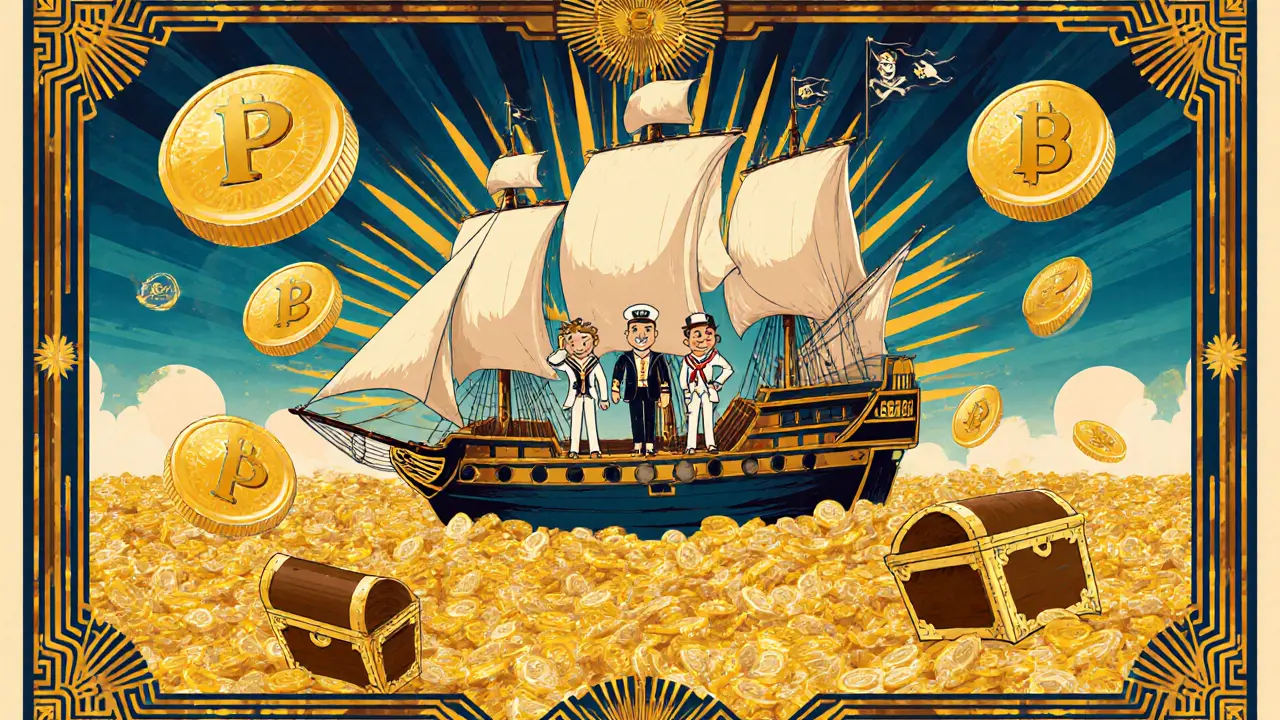Crypto Aquatorium Archive: March 2025 Crypto Trends and Tools
When you check the Crypto Aquatorium, a trusted hub for practical crypto insights, tool reviews, and real-world asset tracking. Also known as a knowledge-first crypto guide, it cuts through the noise to give you clear, actionable info on what’s moving in digital assets. March 2025 was no exception. This wasn’t just another month of price swings—it was the month when blockchain, the underlying technology that powers cryptocurrencies and smart contracts started showing real signs of mainstream adoption in everyday tools. Wallets got smarter, exchanges improved security without slowing things down, and more people started asking how to actually use crypto, not just buy it.
That’s why the posts from this period focused on what works, not what’s hyped. You’ll find deep dives into airdrops, free token distributions tied to specific network actions or community participation that actually paid out, not just hype cycles. We tracked which projects delivered on their promises and which ones vanished after the first tweet. The DeFi, decentralized finance systems that let you lend, borrow, or earn without banks section got real too—liquidity pools that were safe, fees that made sense, and protocols that didn’t require a PhD to use. No vague theories. Just names, numbers, and what you needed to know before you clicked ‘approve’.
And it wasn’t all technical. We covered wallets that actually worked on old phones, exchanges that didn’t vanish after a 10% market drop, and tools that helped beginners spot scams before they lost money. No one here is pretending crypto is easy. But March 2025 proved you don’t need to be an expert to navigate it safely—if you know where to look. Below are the posts that made the cut: honest reviews, real data, and clear steps you can follow today. No fluff. Just what you need to trade, track, and understand crypto without getting lost.
HM Treasury Crypto Policy and Regulations: What UK Crypto Businesses Must Know in 2025
HM Treasury's 2025 crypto regulations require UK crypto firms to get FCA authorization. Learn what activities are regulated, how stablecoins are treated, and what DeFi exemptions mean for businesses and users.
How Nepalis Use Cryptocurrency Despite Complete Ban
Despite a total ban on cryptocurrency in Nepal, citizens use it daily for fast, cheap remittances. With banks slow and expensive, people turn to underground crypto networks - risking jail to send money home.
What is RyuJin (RYU) Crypto Coin? A Real Look at the Omikami Ecosystem Token
RyuJin (RYU) is a zero-tax ERC-20 token on Ethereum, built for the Omikami Ecosystem. With 1 quadrillion supply and locked liquidity, it's a high-risk, community-driven project with potential - but no guarantees.
Why Nigeria Leads the World in Peer-to-Peer Crypto Adoption
Nigeria leads the world in peer-to-peer crypto adoption due to economic hardship, banking restrictions, and grassroots innovation. Over $59 billion in crypto trades happened there in a year - not by choice, but by necessity.
Astroport on Injective Crypto Exchange Review: Speed, Fees, and Real-World Performance
Astroport on Injective offers lightning-fast trades, near-zero fees, and powerful derivatives trading. A top DeFi exchange for serious traders tired of Ethereum congestion and high gas costs.
Medical Records on Blockchain: Benefits and Challenges Explained
Blockchain medical records offer secure, patient-controlled health data sharing across providers. Learn how they solve interoperability issues, reduce waste, and give patients real control-plus the real challenges holding them back.
What is Pirate Coin Games (PirateCoin☠)? The Truth Behind the Crypto Game
Pirate Coin Games (PirateCoin☠) is a confusing mix of a fun pirate RPG and a nearly worthless crypto token. Learn why the game works without crypto-but the token doesn't have real value.
BTCC Crypto Exchange Review: Is It Right for Korean Traders in 2025?
BTCC offers high-leverage crypto futures but lacks KRW deposits and Korean support. Ideal for experienced traders, not beginners. Learn how it stacks up against UPbit and Bithumb in 2025.
SHO Airdrop by Showcase: What We Know and How to Prepare
The SHO airdrop by Showcase has not been officially confirmed, but users can prepare by actively using the platform. Learn eligibility criteria, avoid scams, and track official updates to be ready if an airdrop launches.
Dexko Crypto Exchange Review: Why Dexko Isn't a Crypto Exchange and What You're Actually Looking For
Dexko is not a crypto exchange - it's a trailer parts manufacturer. Learn why people confuse it with decentralized exchanges and discover the real DEX platforms you can use to trade crypto safely.














